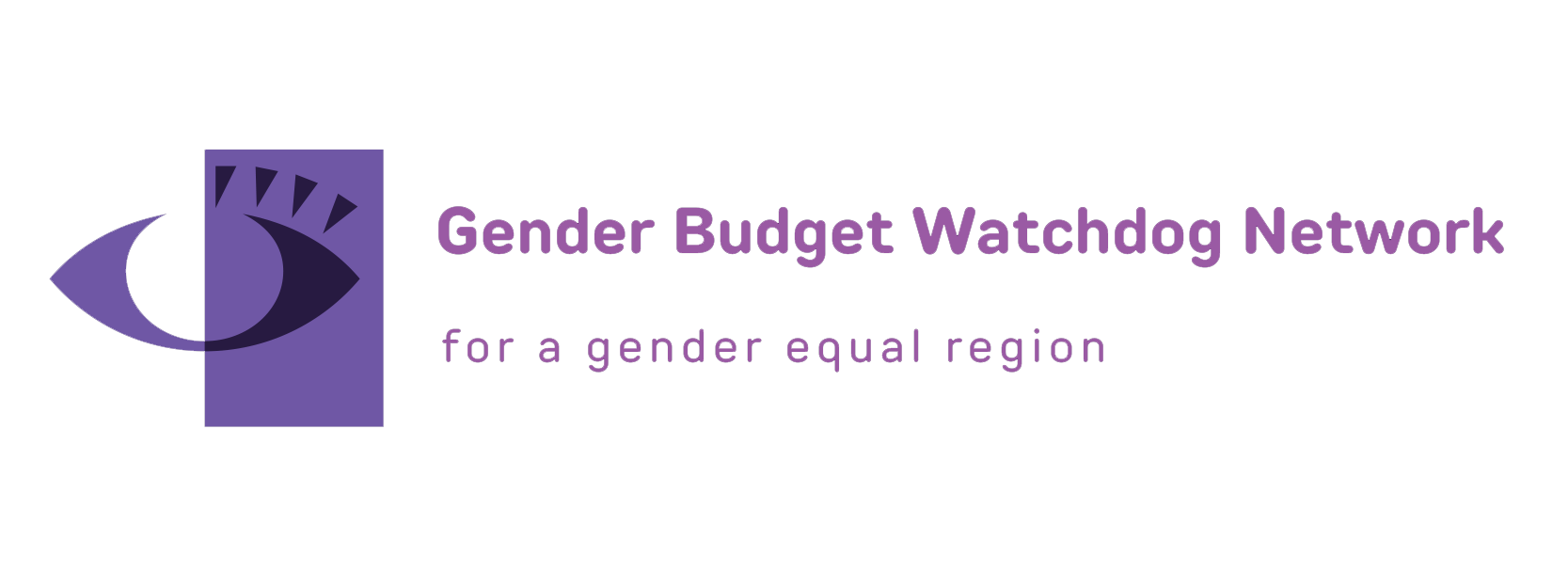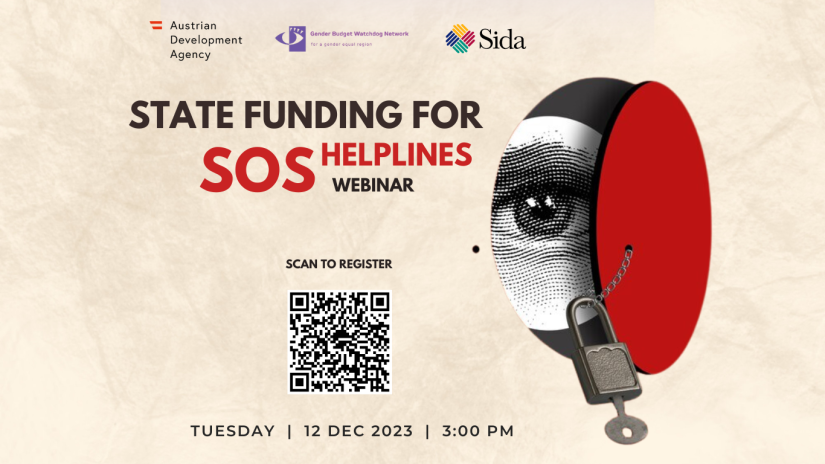Webinar on State Funding for SOS Helplines in the Western Balkans and Republic of Moldova
The upcoming webinar “State Funding for SOS Helplines in the Western Balkans and Republic of Moldova” that will take place online on 12th of December (Tuesday) from 3pm CET, will present the findings from the GBWN policy brief related to funding of SOS helplines, one of specialized services for combating gender-based violence in the Western Balkans and Republic of Moldova.
All Western Balkan governments have ratified and/or adopted into their legal frameworks the Council of Europe Convention on Preventing and Combating Violence against Women and Domestic Violence (known as the “Istanbul Convention”). As per the Istanbul Convention, governments should fund non-governmental women’s rights civil society organizations (WCSOs) and recognizing they are key actors and partners in advancing women’s human rights and gender equality. Moreover, ensuring funding for commitments under the Istanbul Convention should be an objective and result of gender responsive budgeting.
The WCSOs from the region will talk about their everyday challenges and how do they deal with lack of funding as key agents and partners in addressing gender-based violence and furthering gender equality. Register here: bit.ly/3T2tjUH
Agenda of the Webinar
3pm – 3:10pm CET Opening of the Webinar
Moderator: Visnja Bacanovic from Gender Knowledge Hub. Visnja works as a gender mainstreaming expert for more than 10 years, in Serbia and Western Balkans region. She is specialized in gender mainstreaming and gender responsive budgeting and she worked in various programmes and projects that included: capacity building for different actors (NGOs, public servants, mechanisms for gender equality), development of e – learning courses for civil servants, preparation of comprehensive training manual for gender equality mechanism at the local level, conducting gender infrastructure assessment and providing support for its improvement, gender analysis in different sectors.
3:10pm – 4:10 pm CET Presentation of the WCSOs from the Western Balkans and Republic of Moldova Speakers:
- Daniela Dabija, manager of the Trust Phone for Women and Girls, La Strada Moldova
La Strada Moldova as part of La Strada International, a European NGO Platform against human trafficking, that works from a human rights perspective in support of trafficked persons. The platform aims to prevent human trafficking and to protect and realise trafficked persons’ rights. This is done by providing access to adequate assistance and support to victims, and via information and knowledge exchange, capacity building of NGOs and other stakeholders and cross-sectoral cooperation. Focus is on monitoring and advocacy for change to ensure accountability for the effective implementation of European Anti-Trafficking policies and regulations.
- Nataša Mujkanović, Safe House Coordinator, Fondacija lokalne demokratije, Bosnia and Herzegovina
The Foundation of Local Democracy is a local non-governmental organization that has 20 years of experience in designing, coordinating, managing and providing technical and personnel support for various projects and programs. The primary focus of our work is in the protection, promotion and advancement of human rights, especially rights of victims of violence based on gender, community building, creating institutional capacity for networking and development, and leading partner. This kind of focus of our organization has resulted in the fact that we have become an unavoidable partner of government institutions and the initiator and coordinator of system solutions in the field of human rights.
- Jovana Spremo, Safe House Coordinator and Mirzeta Tomljanović, Safe House Technical Coordinator, Fondacija Lara, Bosnia and Herzegovina
Women’s organizations Lara from Bijeljina is a non-governmental organization that has been operating since 1998. Since its foundation, “Lara” has been working on developing programs for the protection of women from all forms of gender-based violence and empowering women for political and other forms of public action. It is the first women’s NGO in BiH to establish a shelter for victims of human trafficking (in 2000), where it provided assistance to nearly 200 women. By advocating for the adoption of better laws, by educating officials and preventing sexual exploitation of women and girls, especially among school youth, Lara significantly contributed and contributes to the reduction of this form of violence against women in Bosnia and Herzegovina.
- Savka Todorovska and Ruzica Pinzovska, NSRR – National Council for Gender Equality, North Macedonia
NSRR – National Council for Gender Equality is a national, multi-ethnic and multi-generational network, creatively oriented towards the future. The organization strives to achieve gender equality, development, protection of women’s rights and peace. The National Council for Gender Equality is a network of around 116 local formal and informal women’s organizations and groups from urban and rural areas in the country. The National Council for Gender Equality (NSRR) was established in October 1994 and grew into one of the largest women’s networks in the Republic of Macedonia. Members of the network are women of different ages, social and educational levels, ethnicity and religion.
- Biljana Stepanov – Director of Women’s Support Center and Board President of SOS Vojvodina Network, Serbia
The Women’s Support Center is a non-governmental and non-profit organization whose goal is to improve the position of women through the organization of various educational, promotional, advisory, research and other activities and contribute to the establishment of gender equality and the policy of equal opportunities, especially in the local community and in the region.
- Ejnxh Pepa – Programme Coordinator, Counselling Line for Women and Girls (CLWG)
The Counselling Line for Women and Girls (CLWG) was established in 1996 by a group of Albanian intellectual women, as a civic response to the omnipresent violence against women, deeply rooted in the country’s patriarchal traditions. The CLWG’s primary activity is to offer psychological, social, and legal counseling to victims and survivors of violence. For more than two decades 148,000 women and girls have benefitted from this direct assistance offered through our SOS helpline service and our in-house face-to face counseling.
4:10 pm – 5 pm CET Open Discussion
Webinar on SOS helplines REPORT
Watch the recording:



